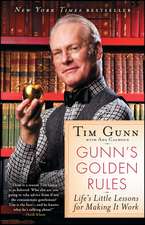Quiet: The Power of Introverts in a World That Can't Stop Talking: Quiet
Autor Susan Cainen Limba Engleză Paperback – 16 ian 2013
ASunday TimesandNew York TimesBestseller
Our lives are driven by a fact that most of us can't name and don't understand. It defines who our friends and lovers are, which careers we choose, and whether we blush when we're embarrassed.
That fact is whether we're an introvert or an extrovert.
The introvert/extrovert divide is the most fundamental dimension of personality. And at least a third of us are on the introverted side. Some of the world's most talented people are introverts. Without them we wouldn't have the Apple computer, the theory of relativity and Van Gogh's sunflowers.
Yet extroverts have taken over. Shyness, sensitivity and seriousness are often seen as being negative. Introverts feel reproached for being the way they are.
In Quiet, Susan Cain shows how the brain chemistry of introverts and extroverts differs, and how society misunderstands and undervalues introverts. She gives introverts the tools to better understand themselves and take full advantage of their strengths.
Passionately argued, superbly researched, and filled with real stories, Quiet will permanently change how we see introverts - and how you see yourself.
'I can't getQuietout of my head. It is an important book - so persuasive and timely and heartfelt it should inevitably effect change in schools and offices' Jon Ronson,The Guardian
'Susan Cain'sQuiethas sparked a quiet revolution. In our booming culture, hers is a still, small voice that punches above its weight. Perhaps rather than sitting back and asking people to speak up, managers and company leaders might lean forward and listen' Megan Walsh,The Times
'Quietis a very timely book, and Cain's central thesis is fresh and important. Maybe the extrovert ideal is no longer as powerful as it was; perhaps it is time we all stopped to listen to the still, small voice of calm' Daisy Goodwin,The Sunday Times
Susan Cain is the owner of The Negotiation Company, a firm that trains people in negotiation and communication skills. Her clients include Merrill Lynch, Standard & Poor, University of Chicago Business School and many of the US's most powerful law firms. She previously practiced corporate law for seven years with Cleary Gottlieb Steen & Hamilton. She lives in New York with her husband and two sons. www.ThePowerOfIntroverts.com
| Toate formatele și edițiile | Preț | Express |
|---|---|---|
| Paperback (2) | 58.85 lei 21-33 zile | +21.65 lei 6-12 zile |
| Penguin Books – 16 ian 2013 | 58.85 lei 21-33 zile | +21.65 lei 6-12 zile |
| BROADWAY BOOKS – 28 ian 2013 | 81.31 lei 3-5 săpt. | +13.11 lei 6-12 zile |
| Hardback (1) | 180.64 lei 3-5 săpt. | +34.27 lei 6-12 zile |
| Crown Publishing Group (NY) – 31 dec 2011 | 180.64 lei 3-5 săpt. | +34.27 lei 6-12 zile |
Preț: 58.85 lei
Preț vechi: 70.00 lei
-16% Nou
11.26€ • 12.04$ • 9.39£
Carte disponibilă
Livrare economică 28 martie-09 aprilie
Livrare express 13-19 martie pentru 31.64 lei
Specificații
ISBN-10: 0141029196
Pagini: 352
Ilustrații: None
Dimensiuni: 129 x 198 x 21 mm
Greutate: 0.26 kg
Editura: Penguin Books
Colecția Penguin
Seria Quiet
Locul publicării:London, United Kingdom
Recenzii
Quietis a very timely book, and Cain's central thesis is fresh and important. Maybe the extrovert ideal is no longer as powerful as it was; perhaps it is time we all stopped to listen to the still, small voice of calm
Susan Cain'sQuiethas sparked a quiet revolution. In our booming culture, hers is a still, small voice that punches above its weight. Perhaps rather than sitting back and asking people to speak up, managers and company leaders might lean forward and listen
I can't getQuietout of my head. It is an important book - so persuasive and timely and heartfelt it should inevitably effect change in schools and offices
A startling, important, and readable page-turner
Notă biografică
Susan Cain is the author of the Sunday Times and New York Times bestseller Quiet: The Power of Introverts in A World That Can't Stop Talking, which has been translated into more than 30 languages. Since her 2012 TED talk was posted online it has been viewed over three million times. Her writing on introversion and shyness has appeared in the New York Times, the Guardian, Oprah magazine and Psychology Today. Cain has spoken at the Royal Society of Arts, Microsoft and Google, and has appeared on BBC Radio 4, BBC Breakfast, CBS and NPR. Her work has been featured on the cover of Time, in the Daily Mail, the FT, the Atlantic, GQ, Grazia, the New Yorker, Wired, Fast Company, Fortune, Forbes, USA Today, the Washington Post, CNN and Slate.com.
She is an honours graduate of Princeton and Harvard Law School. She lives in the Hudson River Valley with her husband and two sons.
www.thepowerofintroverts.com
Descriere
Quiet by Susan Cain will change how you think about introverts forever
A Sunday Times and New York Times Bestseller
Our lives are driven by a fact that most of us can't name and don't understand. It defines who our friends and lovers are, which careers we choose, and whether we blush when we're embarrassed.
That fact is whether we're an introvert or an extrovert.
The introvert/extrovert divide is the most fundamental dimension of personality. And at least a third of us are on the introverted side. Some of the world's most talented people are introverts. Without them we wouldn't have the Apple computer, the theory of relativity and Van Gogh's sunflowers.
Yet extroverts have taken over. Shyness, sensitivity and seriousness are often seen as being negative. Introverts feel reproached for being the way they are.
In Quiet, Susan Cain shows how the brain chemistry of introverts and extroverts differs, and how society misunderstands and undervalues introverts. She gives introverts the tools to better understand themselves and take full advantage of their strengths.
Passionately argued, superbly researched, and filled with real stories, Quiet will permanently change how we see introverts - and how you see yourself.
'I can't get Quiet out of my head. It is an important book - so persuasive and timely and heartfelt it should inevitably effect change in schools and offices' Jon Ronson, The Guardian
'Susan Cain's Quiet has sparked a quiet revolution. In our booming culture, hers is a still, small voice that punches above its weight. Perhaps rather than sitting back and asking people to speak up, managers and company leaders might lean forward and listen' Megan Walsh, The Times
'Quiet is a very timely book, and Cain's central thesis is fresh and important. Maybe the extrovert ideal is no longer as powerful as it was; perhaps it is time we all stopped to listen to the still, small voice of calm' Daisy Goodwin, The Sunday Times
Susan Cain is the owner of The Negotiation Company, a firm that trains people in negotiation and communication skills. Her clients include Merrill Lynch, Standard & Poor, University of Chicago Business School and many of the US's most powerful law firms. She previously practiced corporate law for seven years with Cleary Gottlieb Steen & Hamilton. She lives in New York with her husband and two sons. www.ThePowerOfIntroverts.com
Extras
If these statistics surprise you, that’s probably because so many people pretend to be extroverts. Closet introverts pass undetected on playgrounds, in high school locker rooms, and in the corridors of corporate America. Some fool even themselves, until some life event—a layoff, an empty nest, an inheritance that frees them to spend time as they like— jolts them into taking stock of their true natures. You have only to raise the subject of this book with your friends and acquaintances to find that the most unlikely people consider themselves introverts.
It makes sense that so many introverts hide even from themselves. We live with a value system that I call the Extrovert Ideal—the omnipresent belief that the ideal self is gregarious, alpha, and comfortable in the spotlight. The archetypal extrovert prefers action to contemplation, risk- taking to heed-taking, certainty to doubt. He favors quick decisions, even at the risk of being wrong. She works well in teams and socializes in groups. We like to think that we value individuality, but all too often we admire one type of individual—the kind who’s comfortable “putting himself out there.” Sure, we allow technologically gifted loners who launch companies in garages to have any personality they please, but they are the exceptions, not the rule, and our tolerance extends mainly to those who get fabulously wealthy or hold the promise of doing so.
Introversion—along with its cousins sensitivity, seriousness, and shyness—is now a second- class personality trait, somewhere between a disappointment and a pathology. Introverts living under the Extrovert Ideal are like women in a man’s world, discounted because of a trait that goes to the core of who they are. Extroversion is an enormously appealing personality style, but we’ve turned it into an oppressive standard to which most of us feel we must conform.
The Extrovert Ideal has been documented in many studies, though this research has never been grouped under a single name. Talkative people, for example, are rated as smarter, better- looking, more interesting, and more desirable as friends. Velocity of speech counts as well as volume: we rank fast talkers as more competent and likable than slow ones. The same dynamics apply in groups, where research shows that the voluble are considered smarter than the reticent—even though there’s zero correlation between the gift of gab and good ideas. Even the word introvert is stigmatized—one informal study, by psychologist Laurie Helgoe, found that introverts described their own physical appearance in vivid language ( “green- blue eyes,” “exotic,” “high cheekbones”), but when asked to describe generic introverts they drew a bland and distasteful picture (“ungainly,” “neutral colors,” “skin problems”).
But we make a grave mistake to embrace the Extrovert Ideal so unthinkingly. Some of our greatest ideas, art, and inventions—from the theory of evolution to van Gogh’s sunflowers to the personal computer— came from quiet and cerebral people who knew how to tune in to their inner worlds and the treasures to be found there.
Copyright © 2012 by Susan Cain. From the book QUIET: The Power Of Introverts in a World That Can’t Stop Talking by Susan Cain, published by Crown, a division of Random House, Inc. Reprinted with permission.
Cuprins
INTRODUCTION: The North and South of Temperament |
PART ONE: THE EXTROVERT IDEAL
1. THE RISE OF THE “MIGHTY LIKEABLE FELLOW”: How
Extroversion Became the Cultural Ideal |
2. THE MYTH OF CHARISMATIC LEADERSHIP: The
Culture of Personality, a Hundred Years Later |
3. WHEN COLLABORATION KILLS CREATIVITY:
The Rise of the New Groupthink and the Power of
Working Alone |
PART TWO: YOUR BIOLOGY, YOUR SELF?
4. IS TEMPERAMENT DESTINY?: Nature, Nurture, and the
Orchid Hypothesis |
5. BEYOND TEMPERAMENT: The Role of Free Will (and the
Secret of Public Speaking for Introverts) |
6. “FRANKLIN WAS A POLITICIAN,
BUT ELEANOR SPOKE OUT OF CONSCIENCE”:
Why Cool Is Overrated |
7. WHY DID WALL STREET CRASH AND WARREN
BUFFETT PROSPER?: How Introverts and Extroverts Think
(and Process Dopamine) Differently |
PART THREE: DO ALL CULTURES HAVE
AN EXTROVERT IDEAL?
8. SOFT POWER: Asian-Americans and the Extrovert
Ideal |
PART FOUR: HOW TO LOVE, HOW TO WORK
9. WHEN SHOULD YOU ACT MORE EXTROVERTED
THAN YOU REALLY ARE? |
10. THE COMMUNICATION GAP: How to Talk to
Members of the Opposite Type |
11. ON COBBLERS AND GENERALS: How to Cultivate
Quiet Kids in a World That Can’t Hear Them |
CONCLUSION: Wonderland |
A Note on the Dedication |
A Note on the Words Introvert and Extrovert |
Acknowledgments |
Notes |
Index |


















